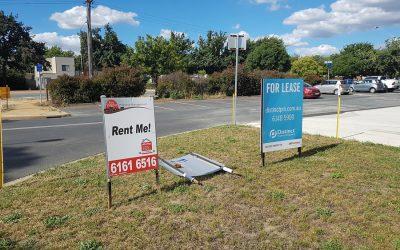
Democratic candidate Joe Biden has proposed a comprehensive series of tax changes, and with him leading in most polls down the stretch of the election, it begs the question: how would his tax changes affect real estate investors?
Brian takes a politics-free look at eight of Biden’s proposed tax changes that could impact real estate investors. No politics, just the facts of the proposed changes.
With many pundits anticipating Democrats taking control of both houses of congress as well, a President Biden would have a much better chance than usual of actually implementing these tax changes. Here’s how they might affect you as a landlord or real estate investor, for better or worse.
Video Broadcast Version
Audio Podcast Version
Also available on iTunes, Stitcher, and wherever else you listen 🙂
Resources Mentioned in This Podcast & Video:

Hey guys, Brian Davis here from Spark Rental. Please let me know where you’re tuning in from as you join us. I always love to hear that stuff makes it feel like it’s more of a dialogue here and not just a monologue!
Last week about creative and safe house hacking tactics during COVID-19 during the pandemic, because let’s be honest, not all house hacking tactics have been as tempting during the pandemic, as they normally are; this week, we’re talking all about how a Biden presidency tax changes would affect you as a real estate investor. And yes, you know, there’s some inherent politics here, but we’re going to keep it very neutral and politics-free. This is not a political platform of course, this is a place to talk about real estate.
Biden is leading in most national polls. So, it looks ever more likely as we’re just a couple of weeks away from the election that we will have a new president come January, and he has proposed some pretty significant tax changes, many of which would affect real estate investors.
We’re just going to go through a quick summary of the specific tax policy changes that he’s proposed, that would impact real estate investors. We’re not going to go through all of his tax changes or proposed tax changes. That would take way too long, but we’re going to go through the highlights of the ones that will or would affect real estate investors if they come to pass.
So, we’re going to dive right in here and jump in with a higher maximum income tax rate. So, the highest income tax rate currently, again, there’s all the federal level. Every state has their own income tax rates, but right now the highest income tax rate is 37% and Biden would like to reraise that back up to 39.6%, which is what it was previously under the Obama administration. It was dropped from 39.6% to 37% in the Tax Cuts and Jobs Act of 2017. Again, this is the top income tax bracket, and this would only affect taxpayers earning more than $400,000 a year. The sister change to proposed tax rule is that in addition to the higher federal income tax rate, these higher earners would also be subject to paying social security taxes on their income over $400,000. Right now, people only pay social security taxes on their first $137,700 of income and then it disappears. This would reinstate the social security tax on income above $400,000 for high earners. So, a double whammy there for higher earners. Again, this is for people earning more than $400,000. So, it does not affect most Americans but it does affect some so worth mentioning there.
Second change that is proposed under the Biden campaign is a change in how long-term capital gains are taxed for higher earners. Now, again, this change would only take place for people earning a significant amount of money more than the average American. This change would be for people wearing more than $1 million a year. So, for those people earning over a million dollars a year capital gains will be taxed at their regular income tax rate and for those owners, that’s 39.6% under the previous change that we just talked about. So long-term capital gains would go from 20% where it is currently at the highest level to 39.6% for high earner. And it looks like trench Thompson says that he’s hearing, okay. Tara says that she’s hearing.
All right, so third proposed change for taxes that would impact real estate investors is Biden has proposed eliminating the step-up basis for inherited property. Now, if that sounds like Greek to you, here’s we’re going to convert that to plain English. So, the step-up basis for inherited properties is when you currently inherited property from when someone does the cost basis for accounting purposes, the cost basis changes from whatever the original owner paid for that property to whatever its value is at the time of their death. So, let’s say that your parents bought a house for $50,000 30 years ago, and today it’s worth a million dollars if they were to die and pass that property on to you, the cost basis would step up to a million dollars its current value. So, you would not have to pay capital gains taxes on the appreciation on that property. Now so that’s, what’s called the step-up basis and accounting for properties that are inherited. So, the Biden campaign has proposed, eliminating that step of basis.
So, you inherit that property that your parents bought $50,000, 30 years ago, it’s now worth a million dollars. So, you would actually pay capital gains taxes on that $950,000 of appreciation that’s taking place over the last 30 years. So yeah, a little bit getting into accounting speak here, but here that is clarified to planning this role, I mean, we don’t speak account and it looks like Denny has joined us here. We’re going to add her in and Edmond says he, clear on the mic for him as well. Alright, so that’s the first three proposed Biden changes that would impact real estate investors and homeowners or people who inherit properties. Fourth proposed tax change that would affect real estate investors is Biden has proposed limiting itemized deductions for those earning over $400,000 a year. So, what he’s proposed is that itemized deductions will be capped at 28% of their value, even though people earning over $400,000 a year would be paying taxes at the 39.6% income tax rate. So, there’ll be a gap there between the maximum allowed a deduction benefit of 28% versus the income tax rate that higher owners be paying, which is 39.6%. So, it limits the value of itemize deductions again, only for higher earners, but for those owners, you know, it is a very real change. Now that particularly impacts higher income homeowners who are taking advantage of the mortgage interest deduction, which is a big deduction for a lot of higher earners, you know, with more expensive properties, higher loans, higher interest. So that would have a bigger impact on higher income homeowners who are currently taking advantage of that mortgage interest deduction. It’s worth mentioning that this only applies to personal itemized deductions. This does not apply to business deductions or real estate expenses for real estate investors.
So, this is for your itemized deductions. This does not impact your rental properties or your expenses as a real estate investor. Those are business expenses. Those are always deductible from your gross revenue as a business. So just wanted to clarify that. Alright, number five, here is Biden has proposed reestablishing the first-time home buyers tax credit. So that would provide a onetime tax credit for first time, home buyers credit of up to $15,000 for their first home purchase. Now this would be actually paid out upon the purchase of the properties are paid out of the settlement table, as opposed to being part of your tax return. So, unlike most tax credits tax, most tax credits are part of your tax return. This would actually come to you at the settlement table to help you come up with the money to buy the house. To buy the property. Now that is good news for people looking to house hack and if you’re not familiar with house hacking, just put a little link there to a little more information, but you know, people who buy a property with the intent of renting out some of the units, for example, a duplex or a three or four unit property, move into one unit rent out the other units. They, if this is their first home purchase, they would be able to use this first-time home buyer tax credit toward that purchase, making it potentially more affordable for them. And I will also share a link to an example of someone like Becky Nova, who we just interviewed a couple weeks ago here on this podcast. She and her husband reached financial independence in less than three years, which is pretty bad ass. That’s pretty amazing. So, I’ll send a link to that case study as well for her but they did this with house hacking. They bought a duplex, moved into one unit, rented out the other lived for free use all the savings from eliminating our housing payment to go out and buy more real estate, more rental property. Alright, so that’s five tax changes or proposed tax changes that would impact real estate investors or your personal home ownership. Alright number six here is Biden has proposed raising the corporate income tax rate from 21% where it is currently to 28%. Now it’s worth just clarifying here that LLCs.
So most real estate investors use LLCs for their real estate investing. LLC’s are typically taxed as partnerships, or if you are a single owner, LLC taxed as sole proprietorships, not taxed as corporations. So that is something that’s worth noting here. You know, whether the corporate income tax rate would affect you as a real estate investor depends on how you structured your legal and it depends on the scale at which you’re investing in real estate. So, this may or may not affect you, but corporate income tax rate would be raised from 21%, where is currently to 28% under a Biden presidency. Alright, so the seventh proposed tax change that would impact real estate investors is Biden has proposed boosting the low-income housing tax credit. So, for investors who put money into low income neighborhoods, many of them qualify for a tax credit of low-income housing tax credit. The Biden campaign has been very stingy with details on how they would boost the low-income housing tax credit. So, we don’t know how much they would boost it, or really any of the details about how they would increase that but they have talked about making that a little bit more accessible and making them more valuable to real estate investors who invest in low income areas. So, it’s worth mentioning, but we don’t have any real details on it to discuss. So, it’s going to leave it hanging out there as a proposal that’s a scarce on details. Alright, the eighth and final proposed tax change that would impact real estate investors is in at the change in the estate tax exemption.
So, we talked a little bit earlier about inherited properties and some of the exchange or the proposed changes to how those would be taxed on a broader level. The Biden campaign has talks about eliminating, or I’m sorry that eliminating reducing the exemption on estate taxes right now, it’s at $11.58 million. The first $11.58 million that you inherit from your parents or from anyone for that matter is exempt from estate taxes. If you inherit more than that, then those estate taxes kick in. So, the Biden campaign has proposed reducing that exemption from 11.58 million down to they say around 5 million. So, they have not given an exact dollar amount, but they’re saying around $5 million would be the exempted amount from money that you inherit. So lower exemption for people who do inherit and more significance from their parents or from any other loved ones, something to be aware of for real estate investors and, you know, keep in mind that it can add up quickly. You know, we use that example someone who has a home that their parents bought 50 grand, you know, way, way back in the day.
Now it’s worth a million dollars to get rid of the step-up cost basis and then suddenly it’s not such a big leap to see how, you know, a middle-class person could inherit more than $5 million. If you’re talking about real estate that does not have that step-up cost basis. So that is a quick overview of some of the Biden proposed tax changes that would specifically affect real estate investors. I’ll just summarize them real quick here for you before we wrap things up. So, hire a top tier income tax rate from 37% to 39.6%. Also, higher earners would start to pay 12.4% in social security taxes again, above $400,000. Long-term capital gains taxes would increase for those running over a million dollars a year. It will be taxed at their regular income tax rate rather than the current long-term capital gains tax rate. Eliminate the step-up basis for inherited properties, limiting itemized deductions for those earning more than $400,000 a year, you would resell it as the first-time home buyers, tax credit, making it presumably a little more affordable to buy your first home. Raise the corporate income tax rate from 21% to 28%. raise the low-income housing tax credit but we don’t know by how much or how that works. And reduce the estate tax exemption from 11.58 million down to five.
So yes, we talked politics today. Hopefully I try to keep it as neutral as possible here since people are very sensitive right now about politics. So, you know, we’re not trying to get political on you just try and talk about, you know, what kind of tax changes we might be seeing come January. If we do have a new president in the white house, which according to the current polls is looking likely, but you never know, you never know what’s going to happen on November 3rd. So, on that note, we’re going to wrap things up for today. Please rate and review the podcast on iTunes or Stitcher or wherever you listen, helps us, and also stay in touch with us. Let us know what you want us to talk about next week. We’re on here every week, talking about whatever it is that you want to hear. Students say a message over on our Facebook page sparkrental.com our website. Let’s just do there. We’re very easy to reach and we look forward to seeing you next Tuesday, two o’clock Eastern 11 Pacific.























